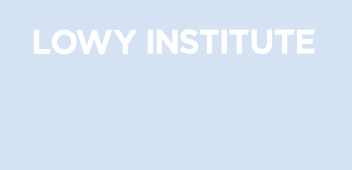Global consensus can sway China
Events this week show that, amid the most protracted great power stand-off since the Cold War, middle powers can forge global consensus. Originally published in the Australian Financial Review.

Australia’s COVID-19 showdown with China presents onlookers with a geopolitical inkblot test. Everyone saw what they wanted to see when the World Health Assembly endorsed a motion this week calling for a review into how the pandemic started and the international health response.
The Coalition claimed a decisive victory and a clear vindication of Foreign Minister Marise Payne’s decision last month to publicly call for an international inquiry into China’s handling of the initial outbreak.
More circumspect analysts argue that Australia at best snatched stalemate from the jaws of defeat – given that the final resolution was the result of compromise and Canberra’s bandwagoning on a European initiative. Meanwhile, outright critics of the government’s approach saw only a pyrrhic victory and Australia cornered by its own dangerous posturing.
Chinese diplomats described the government’s position “as nothing but a joke”. But Beijing’s overreaction suggests it sees Australia’s activism as no laughing matter.
Here too fault lines in interpretation continue to grow in Australia. Many see the flare-up of trade tensions with China as proof that we paid too large and unnecessary a price for being among the first to push for an independent inquiry. For others, Beijing’s retaliation and mocking tone vindicates the principle of standing up to a bully, alone if necessary, and of the futility of accommodating China in any way.
Despite their differences, what these warring schools of thought have in common is a reductive world view in which the sum of Australian foreign policy takes place either in a bilateral vacuum with China, or at best in a fraught triangular relationship between Canberra, Beijing and Washington. They appear to be unbridgeable positions precisely because they fail to account for any wider global perspective.
The fact is what happened in Geneva had little to do with either of the superpowers. Both the United States and China have written themselves out of the game and will emerge diminished from this crisis. At the same time, Australia and the European Union successfully steered a resolution through the World Health Assembly with the largest number of co-sponsors in the 70-year history of the World Health Organisation – a remarkable achievement amid the most protracted great power stand-off since the Cold War.
Herein surely lies a lesson. The vote illustrates that when they work together, middle powers can forge global consensus even in a multipolar and dislocated international system. Just as importantly for Australia, it shows it is possible to influence Beijing’s behaviour when we have strength in numbers.
Neither the international endorsement – by no less than 137 countries – nor China’s eventual accession to the motion was a fait accompli at the outset. To the contrary, the tipping point came late in the game. It required diplomatic tact and unlikely cooperation between countries of varying political dispositions. However, the rapid pace of developments allowed room for experimentation which, to their credit, both the Prime Minister and Foreign Minister embraced.
The government learned quickly from its initial call for an inquiry that there was little to be gained in throwing rocks solo into the international arena. After flirting with the Trump administration’s all-out assault on the WHO, Canberra toned down the rhetoric and reassessed its position.
While a US blame game has undercut the world’s reasonable case against China’s handling of the pandemic, Australia sponsored a proactive resolution and built international support behind it. The net result is a review that promises to examine both the origins of COVID-19 and the role of the WHO. The global health body’s handling of the pandemic will be open to scrutiny but the organisation's centrality to global health policy has not been undermined.
An independent review mechanism that sits within — not outside — the structures of the WHO makes it more likely that the review’s recommendations lead to concrete reforms, and more difficult for China to allege the findings are politically motivated against it.
Some no doubt will see this more cynically. We cannot rule out that Beijing consented to the resolution in order to water down its provisions in practice. However, to come to that judgment now probably overestimates China’s ability to freely influence global institutions and underestimates our own advantages as effective multilateralists.
It is far more likely that Beijing saw which way the wind was blowing. To oppose the motion was a bad look and bound to fail. It chose instead, on the eve of the motion carrying, to be among the last countries to sign on.
Australia has proved that it can carve out a constructive role for itself amid great power disruption. Now that the vote is won, other things become possible. With the loss of US funding all but certain, the race is on for middle powers to fill the WHO’s most egregious financing gaps. Or China will happily do it for us.
Brussels and Canberra often dismiss each other as like-minded but trivial partners insofar as their respective core interests are concerned. In the absence of US global leadership this no longer makes sense. The partnership has already been proved to work at the World Trade Organisation, where a middle-power coalition has successfully bypassed a US blockade of the WTO’s top court – the Appellate Body.
While Europe has heft in the international system, Australia is often nimbler and moves more easily in its relations with Asia. We must use these complementary advantages to the best possible effect and for the broader global good.
In doing so, we prove to ourselves that the China challenge, while significant, is not one Australia need always face alone, or yet so severe that it must subsume all our global interests.


